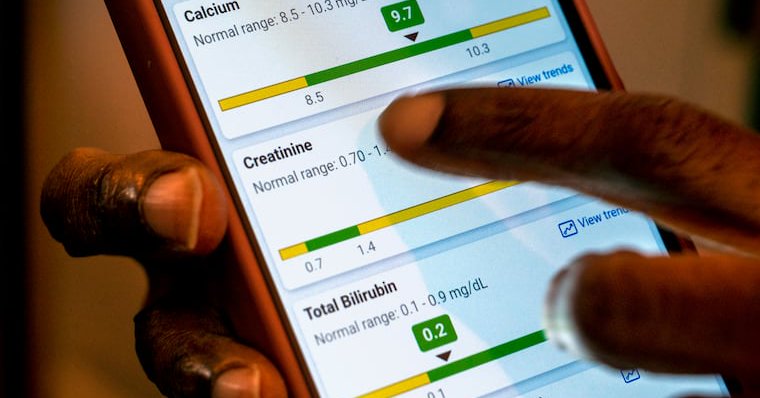
Brian Leas
@brian_leas
Followers
96
Following
1K
Media
1
Statuses
380
Sr. analyst @PennMedCEP, Director @Cochrane_US, EPC Assoc. Dir. @AHRQNews. Evidence-based medicine, clinical guidelines, systematic reviews. #healthpolicy #EBM
Philadelphia, PA
Joined December 2016
At Little-Known Health Agency, DOGE Ends Dream ‘To Make A Difference’ via @forbes
forbes.com
When DOGE slashes jobs at agencies like AHRQ and low-profile jobs like the patient safety work of Heather Sherman, it endangers the health of the American public.
0
0
0
The businesses hoping to boom under an RFK Jr.-led HHS
axios.com
Several corners of industry are eagerly awaiting what they see as a new era for health care.
0
0
0
Putting RFK/Battacharya/Makary/Weldon/Oz in charge of HHS is like letting Neturei Karta run AIPAC. IYKYK
0
0
0
"We should not be giving Black people the same vaccine schedule that's given to Whites, because their immune system is better than ours." ---RFK Jr. So what vaccine schedule should I have received? His answer was dangerous. I will be voting no.
15K
24K
160K
🙏🏽 @statnews for this important summary of how clinical algorithms can impact health disparities https://t.co/mvURtxol4x Looking forward to reading the rest of the series @AHRQNews
A STAT Investigation: Embedded Bias This is a new series revealing how race-based clinical algorithms pervade medicine and why it's so difficult to change them. Part 1: https://t.co/VF05OIeAOq👇🧵
0
8
35
Are race-blind medical algorithms more fair? Not necessarily. See this 🧵by the fabulous @annalzink, on our new @PNASNews paper Then, if you're hiring in health + data, HIRE ANNA—she's on the job market this fall, and she is one of the best people I've ever worked with
There are good arguments for removing race from medical algorithms, but there may be unintended consequences. Our PNAS paper finds that race-blind algorithms can *worsen* racial inequalities, bc they can't adjust for racial disparities in data quality. https://t.co/bASruXYHXx
1
11
59
As part of #AHRQ's efforts to enhance #PatientSafety, two new evidence reviews on clinician fatigue and active surveillance culturing are now available. Learn more in the Making Healthcare Safer IV report. https://t.co/Ct74YZLHe9
0
2
3
Discover how targeted surveillance for high-risk patients for Clostridioides difficile and carbapenem-resistant Enterobacterales can reduce infections, despite cost and effectiveness questions. Read more from this #AHRQ rapid evidence product. #research
https://t.co/uSeU0tmeq7
0
1
3
Thank you @phillyinquirer for sharing our @AnnalsofIM paper! Race is a great variable to study the effects of systemic racism & explore social differences, but is a bad variable for clinical decision-making. Unfortunately it's pervasive in algorithms👇🏽 https://t.co/vhOdiZla34
inquirer.com
Researchers say health systems should be careful not to assume that an algorithm is unbiased, just because it's not human.
1
7
23
This #JewishAmericanHeritageMonth, #AHRQ is proud to stand with the Stand Up to Jewish Hate campaign. We're dedicated to creating a healthcare environment where everyone is respected and protected. Join us in promoting inclusivity.
0
2
3
A new Q&A with LDI Fellow @ShaziaMSiddique highlights evidence that health care algorithms can both improve and worsen racial and ethnic disparities for patients—regardless of their inclusion of race or ethnicity as a variable.
1
2
5
New research found that health care #algorithms can mitigate, perpetuate, and exacerbate racial and ethnic disparities, even when race or ethnicity aren't explicitly used as inputs. @ShaziaMSiddique discusses the root of the problem and offers solutions:
0
5
12
A @PennMedicine study points to ways to reduce potential for racial bias and inequity when using algorithms to inform clinical care. https://t.co/L7ivoynStK
penntoday.upenn.edu
A Penn Medicine study points to ways to reduce potential for racial bias and inequity when using algorithms to inform clinical care.
0
1
5
Health care algorithms can either mitigate or worsen racial and ethnic disparities. Findings from recent studies underscore the importance of intentionality and implementation: https://t.co/dyBpuUKSpq
@ShaziaMSiddique @pennmedcep
0
5
16
Our @AHRQNews funded systematic review is out in @AnnalsofIM 📢 How do healthcare algorithms impact racial & ethnic disparities? More👇🏾 @PennMedCEP @brian_leas @garyweissman @jayaaysola @jordy_bc @harald_tweets @Michael_Harhay @emiliafloresPhD @penngihep @PennLDI @PennMedicine
A systematic review of 65 health care algorithms (51 were simulations) over the past 12 years highlights their potential to with mitigate or exacerbate racial and ethnic disparities https://t.co/uID4xWFfjf
@ShaziaMSiddique @AnnalsofIM #AI
7
10
50
A systematic review of 65 health care algorithms (51 were simulations) over the past 12 years highlights their potential to with mitigate or exacerbate racial and ethnic disparities https://t.co/uID4xWFfjf
@ShaziaMSiddique @AnnalsofIM #AI
3
43
130
Current tools to assess risk of bias in clinical prediction algorithms don’t address risk of racial and ethnic group bias or #health equity implications. LDI Fellows have developed a tool extension to help. Read more here:
liebertpub.com
Introduction: Despite mounting evidence that the inclusion of race and ethnicity in clinical prediction models may contribute to health disparities, existing critical appraisal tools do not directly...
1
4
4
A recent @JAMA_current paper offers principles for using healthcare algorithms responsibly, thanks to insights from experts brought together by #AHRQ earlier this year. Explore this paper now. #HealthEquity
https://t.co/cLrdyPzL6l
0
3
4
#AHRQ brought together a panel of experts earlier this year to guide the future of healthcare algorithms, as detailed in a recent @JAMA_current publication. Check it out now to learn more. #HealthEquity
https://t.co/cLrdyPzL6l
0
3
6
Believe it or not, figuring out whether medical interventions work is actually a pretty mathematically complicated job that requires years of training and lots of careful data analysis.
20
50
1K














